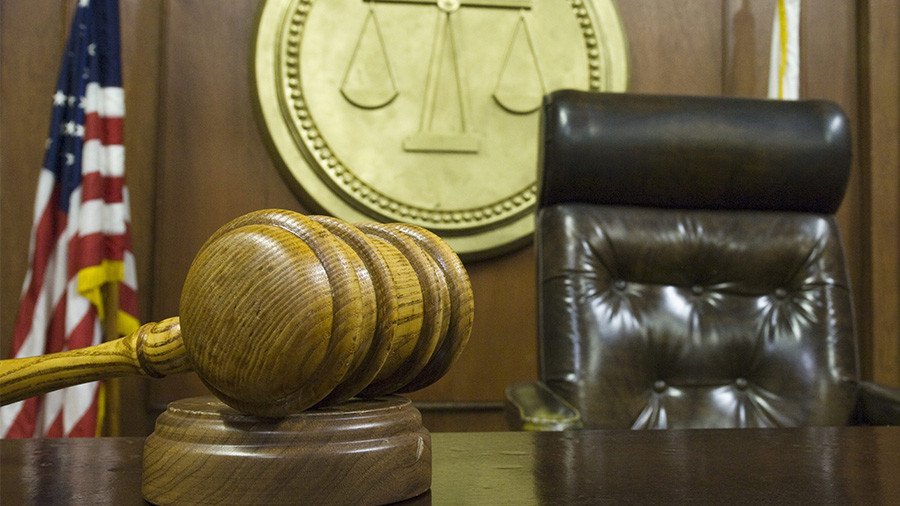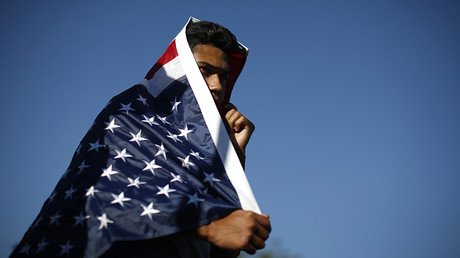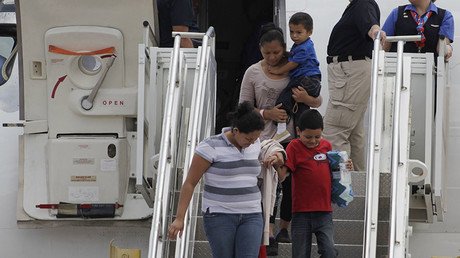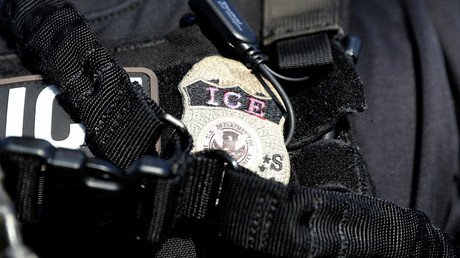Boy brought from Honduras illegally has no right to govt-funded lawyer, court rules

A minor brought into the US from Honduras illegally by his mother does not have a constitutional right to a counsel in immigration proceedings at the government's expense, a federal appeals court has ruled.
On Monday, the 9th Circuit Court of Appeals upheld a deportation order against C.J.L.G., an underage boy from Honduras who fled gang violence with his mother and entered the US illegally in 2014.
In a 54-page ruling, the three-judge panel based in San Francisco, California, declared “it is not established law that alien minors are categorically entitled to government-funded, court-appointed counsel.”
C.J.L.G. v. Sessions #Immigrationhttps://t.co/TO0wnSVUiD
— US 9th Cir (@US9thCircuitCt) January 29, 2018
Criminal defendants in US courts are entitled to a court-appointed lawyer at the government’s expense, as a guarantee of due process. Immigration is considered a civil proceeding, however.
The panel also concluded that the Board of Immigration Appeals was correct in saying that CJ’s experience of having a gun put to his head by a member of Mara Salvatrucha (MS-13) did not amount to “severe pain or suffering.”
After he was threatened by the gangs, CJ was brought into the US by his mother Maria, who had already been deported for entering the country illegally. He was 13 at the time. Maria signed the notice to appear (NTA) for her son, and was provided with a list of organizations that provide pro bono legal services, according to the court.
When she told the judge she had no money for a lawyer, Maria was told she can represent her son. After the Board of Immigration Appeals ruled against CJ’s asylum application, however, he sued the government. The American Civil Liberties Union (ACLU) took up his case, with amicus briefs by the Immigrant Legal Resource Center and the Center for Gender & Refugee Studies.
CJ’s lawyers cited a previous case of a Chinese dissident who was inadequately represented by his attorney, arguing that this meant he was legally entitled to a government counsel.
The 9th Circuit judges disagreed, saying the Jie Lin case “did not hold that minors are categorically entitled to court-appointed counsel at government expense” and that CJ was asking for “something beyond Congress’ prescription.”
One of the concurring judges, however, noted that Monday’s ruling does not touch on whether unaccompanied minors are entitled to government-provided counsel.
“That is a different question that could lead to a different answer,” wrote judge John B. Owens.
Over the past year, the 9th Circuit has frequently clashed with the Trump administration on the issues of immigration, refugees and travel bans. Monday’s ruling comes amid an acrimonious public debate about immigration, with Democrats demanding legal status for immigrants brought into the US illegally as children.
Such immigrants are known as “Dreamers,” after a law first proposed in 2001. Over 700,000 of them have been shielded by an executive program created by President Barack Obama in 2012, called Deferred Action for Childhood Arrivals (DACA).
The Trump administration announced it would cancel DACA as of March 2018, though that decision is currently facing review by the US Supreme Court.
Think your friends would be interested? Share this story!















